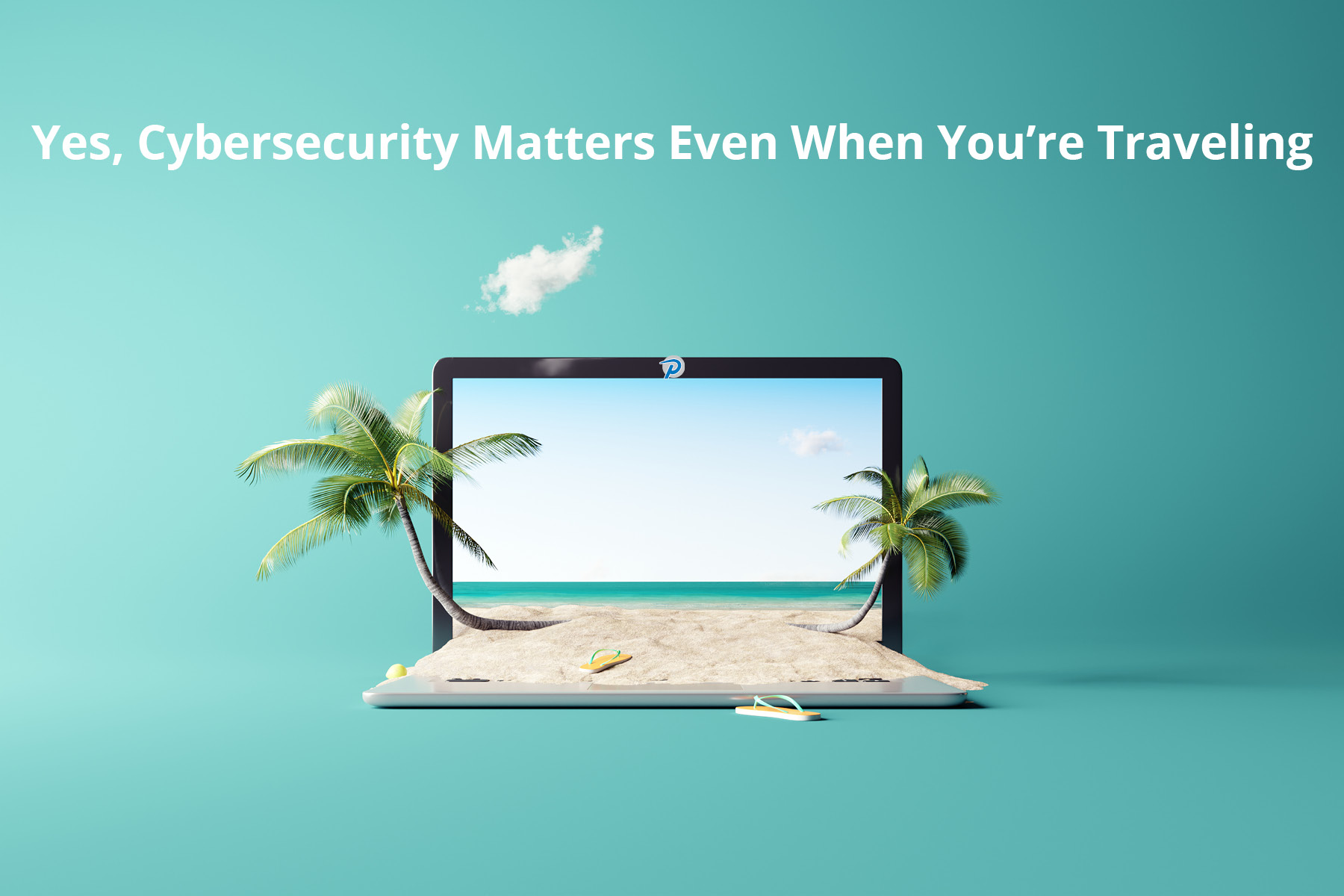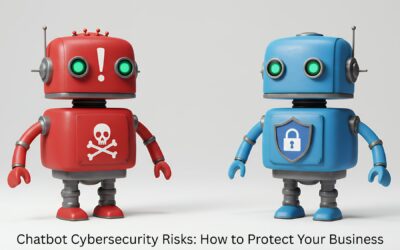Whether you’re heading to a conference, working remotely from a cozy café, or even on a personal vacation, your sensitive data can be more vulnerable than usual. Here’s why cybersecurity matters even when you’re traveling and some simple ways to keep your devices and data safe.
Cybersecurity concerns when you’re away from your trusted network:
- Public Wi-Fi: A Hacker’s Playground
Free Wi-Fi at airports, hotels, and coffee shops is convenient, but it’s also a favorite hunting ground for cybercriminals. These networks are often unsecured, making it easy for hackers to intercept the data you’re sending and receiving. - Physical Theft: Easy Pickings
Laptops, smartphones, and tablets are prime targets for thieves. Losing a device is bad enough, but if it contains sensitive information, the consequences can be severe. - Unsecured Devices: An Open Door
If your devices aren’t properly secured, they can be an open door for cybercriminals. Without the right protections, accessing your files, emails, and applications can be a piece of cake for a determined hacker.
To minimize the risk of a cyberattack while traveling, here’s a few best practices:
- Backup your data BEFORE you go. If your device gets lost or ruined, you’ll want a trusted, clean copy of your data available to be restored.
- Update your software. Make sure your operating systems, web browsers, and apps have all been updated to the latest version. This can help defend against any recent, known vulnerabilities and attack methods.
- Enable device locking features. You should always lock your device using a Pin, passcode, fingerprint, or facial recognition feature just in case it is lost, stolen, or left unattended.
- Enable “Find My Device”. Not only will this help you locate a device if you lose it, but it also allows you to remotely wipe data or disable if it falls into the wrong hands.
- Disable auto-connect features. Some devices automatically seek and connect to available wireless networks. Disable this so you only connect to wireless and Bluetooth networks that you know and trust.
- Do NOT connect to public WiFi. If you have to use it…
- Use a Virtual Private Network (VPN). A VPN encrypts your connection, helping to secure your data even when you have to use public WiFi networks.
- Manage location services. Location tools are useful for navigating new places, but can also expose your location to criminals. Turn off location services when you’re not actively using that feature and review (and limit) how you share your location on social media.
Traveling doesn’t have to be a cybersecurity nightmare. By taking these simple precautions, you can enjoy your trips with peace of mind, knowing that your devices and data are safe and secure. Safe travels!




